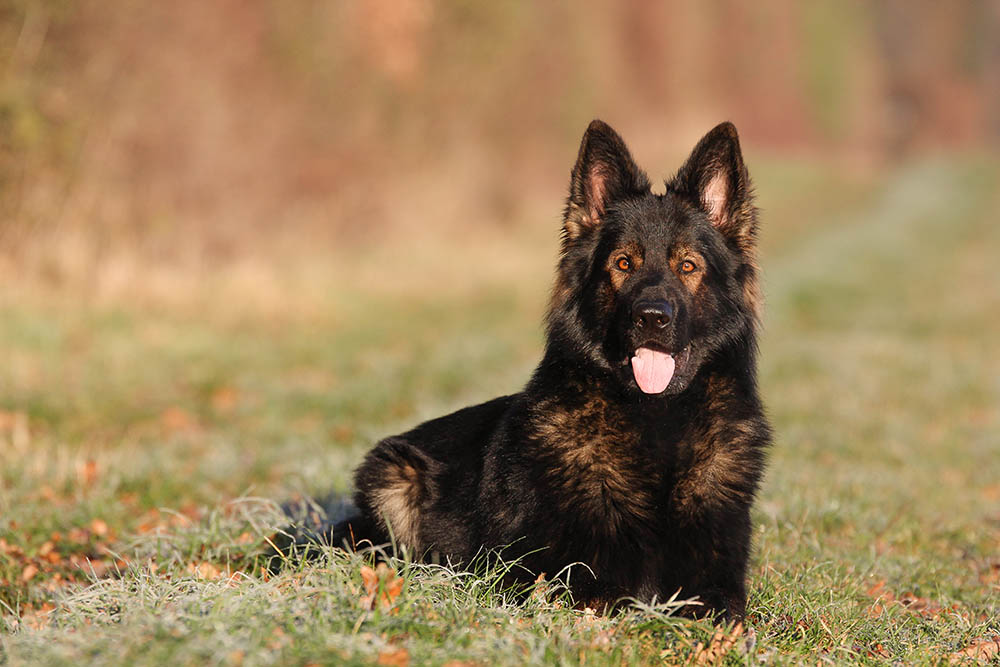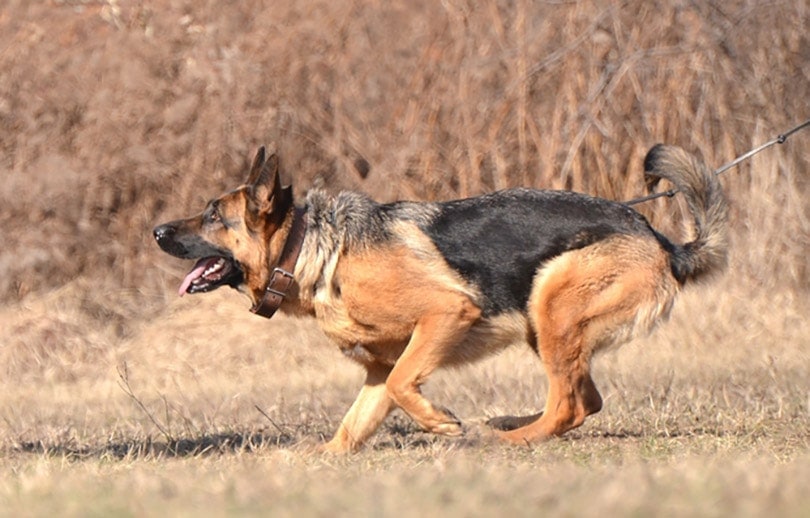Can Dogs Eat Spicy Food? Vet Approved Facts & Safety Guide
By Hanh Duong
Updated on
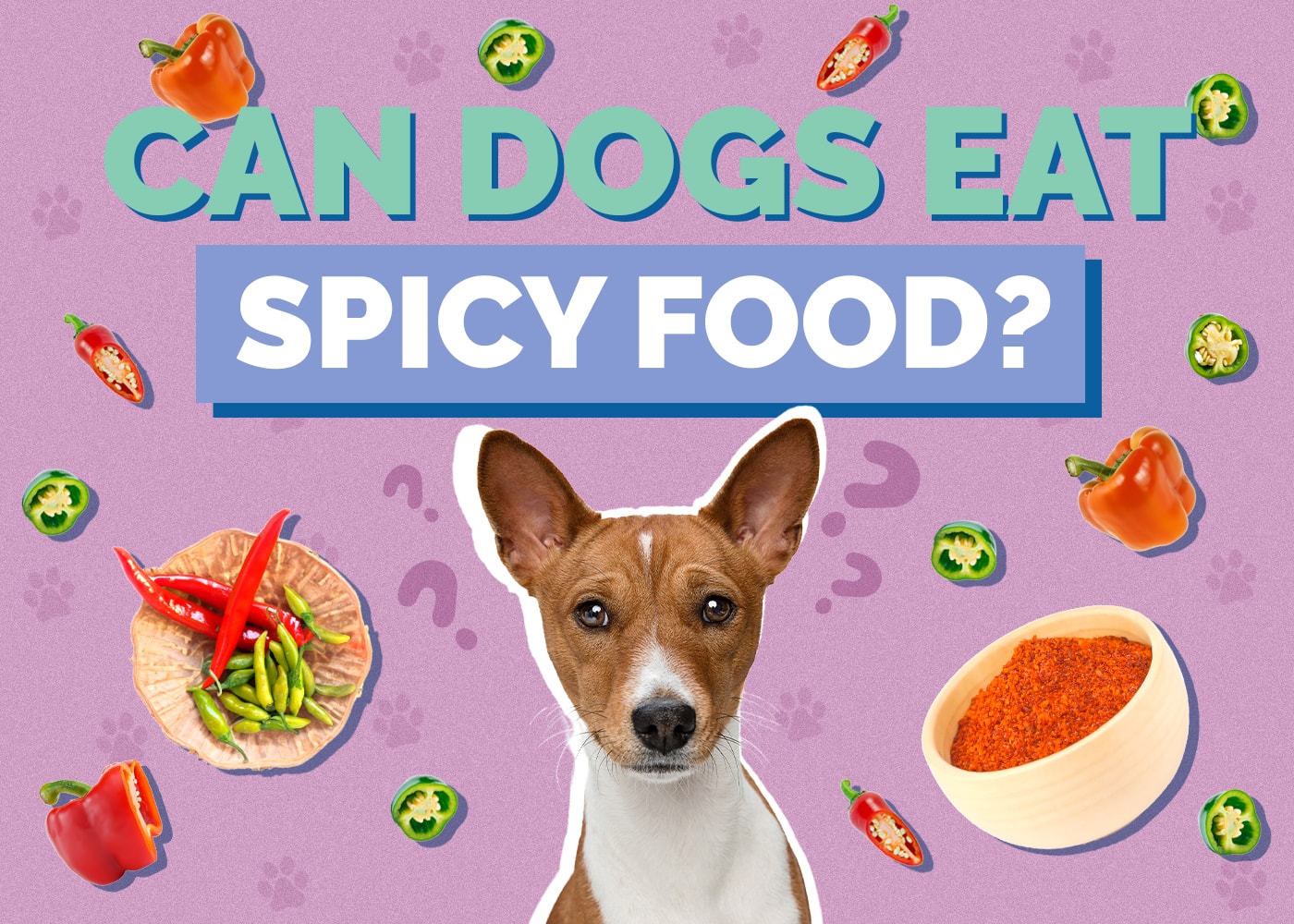
If you like spicy cuisine, you might be curious whether your dog would like a taste of your preferred meal and whether they will actually enjoy it—or if it’s actually safe for them. However, dogs shouldn’t consume spicy food because it can upset their stomachs and cause long-term health issues. In other words, dog owners should avoid feeding their furry friend foods that contain chili peppers or any foods made of hot sauces or seasonings that are spicy.
Let’s continue reading to discover more about the negative consequences of spicy meals for dogs.
Why Is Spicy Food Bad for Dogs?
It takes a while for the flavors to become apparent to the right taste buds when dogs eat anything spicy. But when they experience a spicy flavor, they might not feel the heat like a person does.
There are several reasons why you should never give your dog spicy food, including:
- Most dogs find this food unpleasant and feeling that much heat and burning after eating can hurt them. When a dog associates an uncomfortable experience with a particular meal or feeding circumstance, they may develop food aversions and refuse to eat it, even if it is not spicy the following day.
- While modest doses of capsaicin (the chemical that gives hot peppers their distinctive burn) are thought to be harmless to dogs, swallowing enough of it might result in stomach ulcers, vomiting, and uncomfortable diarrhea.
- Numerous human foodstuffs are toxic to dogs, so giving your furry friend spicy food with lots of unidentified ingredients might expose them to additional toxins.
- The burning sensation from capsaicin in spicy foods might make your dog very thirsty. They might drink excessive amounts of water, causing bloating and stomach discomfort.
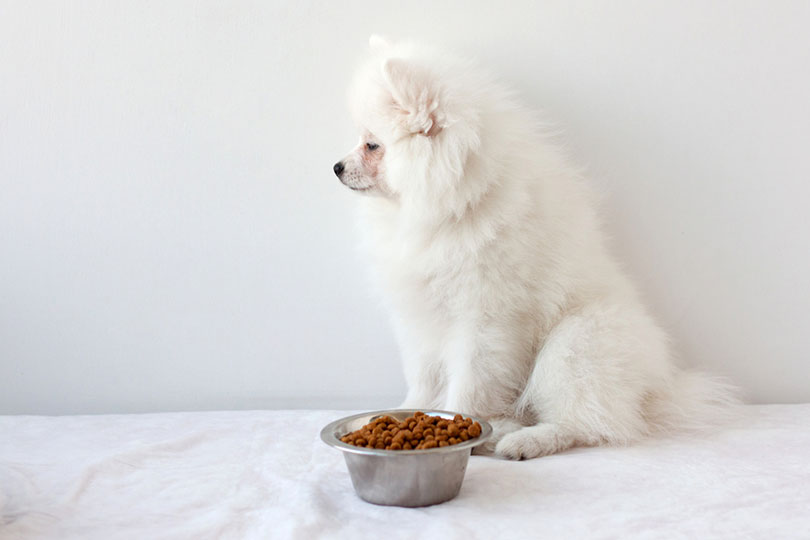
Can Dogs Eat Hot Sauce?
Dogs should not consume hot sauce. Capsaicin is the active component in hot sauce and can cause mouth and digestive tract irritation for dogs. In addition, the roof of a dog’s mouth and tongue can be burned by capsaicin, which may also lead to vomiting.
Remember that our furry friends cannot eat onions and garlic, and many hot sauces are made with those ingredients, another reason to keep them away from spicy food. The Vets told that if you choose to feed your dog spicy food, you’ll have to be diligent about the individual ingredients to avoid accidentally giving your dog something harmful. The time and risk simply may not be worth it.
Effects of Spicy Foods on Dogs
Your dog is not immune to the heat that comes from eating spicy food. A dash of pepper that is only mildly spicy may cause these animals to face a lot of pain since they’re likely to feel the heat far more intensely than you do. This response is a neurological system reaction that the brain sends to the mouth. Like humans, dogs can experience a burning sensation in the throat and mouth, and consuming spicy food too often may result in gastrointestinal trouble.
Your furry friend may experience many of the symptoms—they may drool, sneeze, cough, or foam at the mouth when they experience this kind of heat. It can also force your dog to paw at their face and pant. In some cases, the eyes will water. If the food is too spicy for them, your pet may dry heave or gag.
If your dog has a sensitive stomach or is prone to reflux, spicy food can seriously exacerbate these issues, or even lead to the development of gastric ulcers, a potentially life-threatening condition.
What to Do if Your Dog Eats Spicy Food
You can try to give your dog some milk or plain yogurt to help them cope with the heat if they accidentally ingest spicy food. Contrary to what many owners believe, water won’t help very much with spicy food, although make sure some is available as your dog will certainly seek it out. Milk can help reduce the effects quickly. After that, speak with your veterinarian to see whether further action is necessary.
Symptomatic treatment will help relieve nausea, vomiting, diarrhea, gastrointestinal pain, etc. It may include oral lavage, IV fluids, antiemetics and antidiarrheals, and gastric protectants. Therefore, it’s critical to avoid giving your dog spicy food, even if they seem to enjoy it.
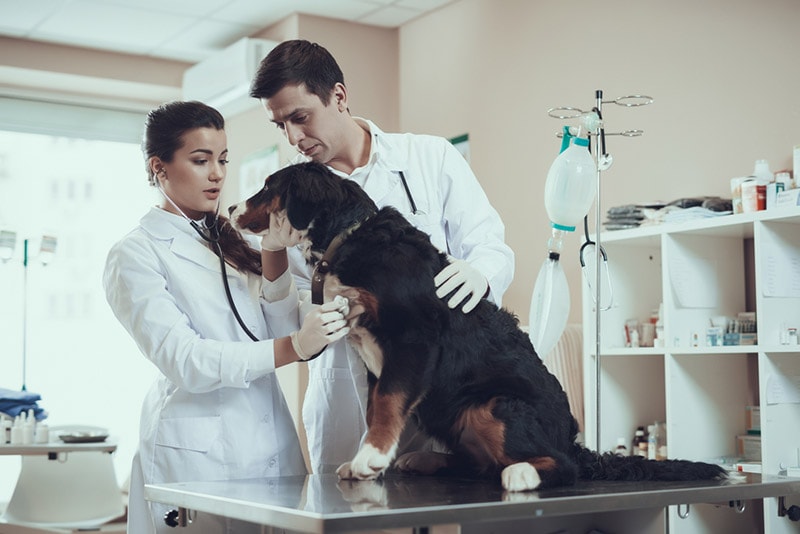
Conclusion
It’s better to steer clear of serving any spicy food to your dog. Sharing table scraps can be tempting, but it’s not worth the potential discomfort it can cause your pet, not to mention the mess that follows. This is especially true because many spicy meals contain toxic substances for dogs such as garlic and onions.
Of course, this doesn’t mean you can’t occasionally spoil them with some tasty human food. However, you have to stick to vet-approved foods like a few specific fruits and veggies in moderation. When in doubt, always reach out to a veterinarian.




